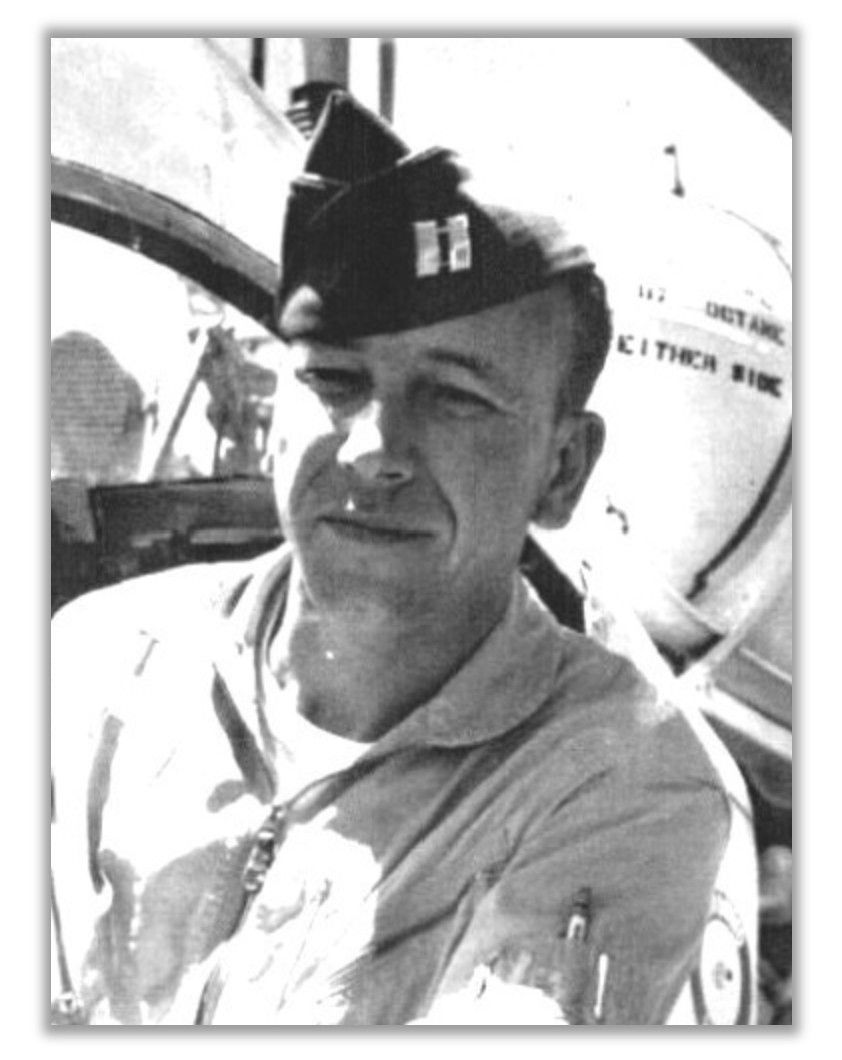This Day in History: Captain Ed Freeman's Vietnam helicopter rescue
- tara
- Aug 20, 2025
- 3 min read
On this day in 2008, a hero passes away. Ed “Too Tall” Freeman is best known for his service as a helicopter pilot in Vietnam. He would ultimately receive a Medal of Honor for his bravery in the skies.
An interesting accomplishment for a man initially deemed “too tall” for flight school?
At 6 feet, 4 inches, he was accepted to flight school only when the Army—desperate for pilots—changed the height requirement in 1955.

Fortunately, U.S. Army Captain Freeman had thousands of flight hours under his belt by the time he got to Vietnam, but he would need every last ounce of skill that he possessed to get through his mission on November 14, 1965.
Freeman was then serving with the 229th Assault Helicopter Battalion, which was tasked with inserting troops into a landing zone near the Ia Drang River. It was the first day of the first major battle between American and North Vietnamese troops. Freeman was second-in-command of his 16-helicopter lift unit.
“We made four lifts into there without receiving a round of fire,” Freeman later described, “[and] I thought: another cakewalk here. On the fifth lift they cut us in two. . . . three regiments come off the side of that hill—they were dug in.”
All four men aboard the helicopter were wounded, including Freeman. He returned to the staging area to discover helicopter operations shut down. But they couldn’t stay that way: The battle on the ground was too intense. Someone was going to have to go back.
Freeman volunteered. He surely didn’t expect to survive such a mission, but he knew he had to go. “I put ‘em in there,” he explained. “And it’s a soldier’s trust. The Army had assigned me a helicopter—that was a wonderful tool. And I could make it talk.”
“They were flying into hell on earth,” Joseph L. Galloway, co-author of We Were Soldiers Once . . . and Young, explains. Nevertheless, Freeman flew his unarmed helicopter back and forth for hours. He delivered needed ammunition, water, and medical supplies. He picked up wounded soldiers.
Amazingly, throughout this time, his landing zone was only 100 to 200 meters from the heaviest fighting.
“Captain Freeman flew 14 separate rescue missions,” his citation notes, “providing life-saving evacuation of an estimated 30 seriously wounded soldiers—some of whom would not have survived had he not acted.”
Miraculously, Freeman survived, too. Perhaps you won’t be surprised to hear that this veteran of three wars retired just a few years later? He began flying helicopters for the Department of the Interior instead. Captain Freeman had been nominated for the Medal of Honor, but not in time for a statutory deadline.
He initially received a Distinguished Flying Cross instead.
Fortunately, Congress removed the deadline, and Freeman finally received his Medal of Honor in 2001. “I can’t hardly describe the feeling that I had when he hung that medal and took two paces back and saluted,” Freeman said, “the President of the United States.”
But Freeman wasn’t the only helicopter pilot to earn a Medal of Honor that day. Bruce P. Crandall showed similar bravery, and the two would joke endlessly about who is the “best damned helicopter pilot in the world” until Freeman’s passing at age 80.
Naturally, that is a story for another day.
Enjoyed this post? More Medal of Honor
stories can be found on my website, HERE.
Primary Sources:
Katie Lange, Medal of Honor Monday: Army Capt. Ed Freeman (U.S. Dept. of Defense website; Apr. 29, 2019)
Joseph L. Galloway, Army Fliers Who Showed They Were Among America's Best (The State; Feb. 19, 2007) (p. A11)
Medal of Honor citation (Ed W. Freeman; Vietnam)
Medal of Honor: Oral History (Ed Freeman; Vietnam)
Patrick Peterson, Medal of Honor Winner Returning to Mississippi (Sun Herald; Oct. 31, 2003) (p. A4)
Peter Collier et al., Medal of Honor: Portraits of Honor beyond the Call of Duty (3d ed. 2011)
Veterans History Project: Interview with Ed Freeman (transcript available HERE)
Comments